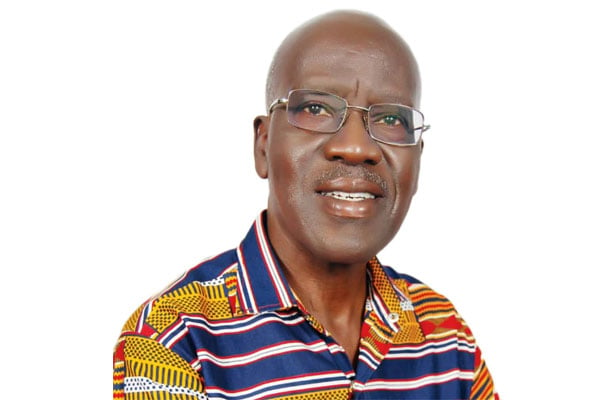Shakespeare in the heart of Africa

Prof Timothy Wangusa
What you need to know:
- ‘‘He portrays the entire spectrum of human character traits, emotions, values, virtues, and vices”
You can imagine my utter and pleasant surprise when I first met ‘Shakespeare in Africa’! There ‘he’ was, sitting or rather lying on a table (not a chair) belonging to a young man called Bahadur Tejani.
The scene was a school, Kiira College Butiki, located just east of River Nile, Uganda, on a hilltop a few miles from Jinja Town along the northerly road to Kamuli Town. The year was 1964, and my beautiful country Uganda was only two years into her colourful honeymoon as a politically ‘independent’ country.
Bahadur Tejani, a young Ugandan of Asian ancestry, was a brand new graduate (of 1963) from Makerere University College (University of East Africa) with an impressive Honours degree in English. At Makerere, Tejani had, therefore, been the course-mate of the Kenyan student James Ngugi – of future renown – (later to ideologically convert himself into Ngugi wa Thiong’o) whose stage play, Black Hermit, had been performed at the National Theatre in Kampala in 1962 as part of the celebrations to mark Uganda’s (bloodless) acquisition of ‘independence’ from Britain.
From King’s College Budo, we, the Higher School Certificate (HSC) students plus the candidate class of the Cambridge School Certificate (CSC), had been picked by the headmaster to go and see Ngugi’s very first play.
With HSC studies behind me, I was now temporarily at Kiira College Butiki as a licensed student teacher (the first time I taught in a school) for the first half of 1964, waiting to report to Makerere as a first year student later that year. I was thus going to ‘fata nyayo’ in the footsteps of both Tejani and Ngugi who would always remain my esteemed seniors and role models by three years. Tejani, of future eminence, was at Kiira College Butiki as a first-time graduate teacher of English. He was sharing the same staff house with four of us, the post-HSC licensed student teachers.
It was from this close proximity that I happened to one day see ‘Shakespeare in Africa’ sitting on Tejani’s table in our shared house. But, of course, this Shakespeare was not the historical two-legged version of flesh and blood but a book of pamphlet size –
‘What!’ I exclaimed, upon seeing the title. ‘Did Shakespeare ever travel to Africa, and when was that?’ I inquired, full of curiosity.
I had, of course, met William Shakespeare (1564-1616) at Nabumali High School via his comedy, Twelfth Night, and at Budo at HSC level via another comedy of his, As You Like It. The former play is perhaps mostly remembered for Duke Orsino’s opening line, ‘If music be the food of love, play on’; and the latter for the speech by the cynical and melancholic Jacques about ‘the seven ages of man’, each with its theatrical ‘entrances and exits’.
But what was this ‘Shakespeare in Africa’ idea of a book? I later established that Shakespeare never travelled to Africa and never left the British Isles. But in this thin book by a former professor of English at Makerere (where I was yet to set foot), there was a very attractive and selling universal idea emanating from this foreign man Shakespeare, which, in contemporary terminology, is best described by the Zulu word ‘Ubuntu’ = ‘practice of sound humanliness’.
In a nutshell: The author argues that Shakespeare is as relevant in Africa as he is in every human community. Not only did he famously say ‘something about everything’, but also in his plays, he portrays the entire spectrum of human character traits, emotions, values, virtues, and vices.
In imaginatively planting your feet in the shoes of every possible type of character, you, the sensitive reader/theatre-goer, end up acquiring a special kind of ‘wisdom’: a fellow feeling for and identification with all categories of human beings in their pain and joy. You become Mister or Madam ‘Everyone’, with a peculiar sense of compassion for everyone else. Wow, how about that?
Prof Wangusa is a poet and novelist.


